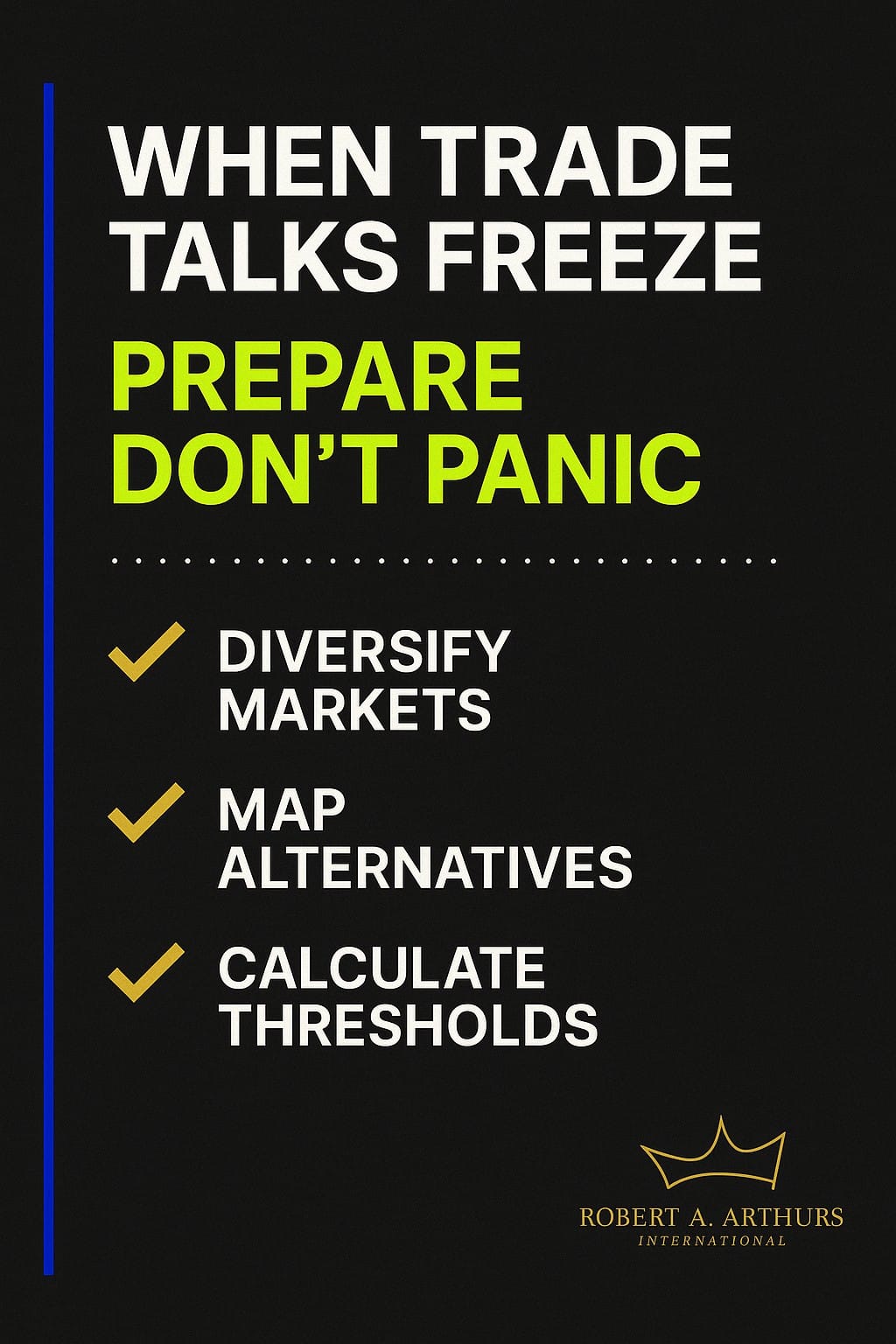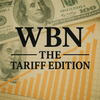
October 27, 2025
One political comment just disrupted $2.5 billion in daily trade. Here's your survival plan:
I believe the unpredictability of the current U.S. leadership is a key factor in why it's difficult to fully rely on the stability of the CUSMA agreement or any future trade agreements under the United States. Even if we have a formal agreement, there's always the possibility that key decisions could change unexpectedly due to shifts in leadership priorities.
For example, we’ve seen instances where negotiations were abruptly paused, such as when President Trump froze talks with Canada after a disagreement over an article in Ontario. This demonstrates that the continuity and reliability of agreements can be vulnerable to sudden changes, which is why some may question the trustworthiness of such arrangements under the current administration. For businesses on both sides of the border, this isn't just political theater; it's a direct threat to supply chains, contracts, and cash flow.
This phrasing avoids direct negativity, but it makes the point clear.
After 36 years advising companies through trade disruptions, I've witnessed this pattern repeatedly: political friction creates business casualties. But it doesn't have to include you.
friction creates
While others panic, here's your strategic roadmap:
WHY DIVERSIFICATION WORKS:
• It creates leverage when one market
becomes volatile
• It builds resilience against policy whiplash
• It opens new revenue streams unaffected by
bilateral tensions
• It repositions your business as globally competitive, not just regionally dependent
IMMEDIATE ACTIONS FOR YOUR BUSINESS:
• Conduct a trade exposure audit — identify which products and services are vulnerable to potential tariffs
• Map alternative suppliers in your own country and non-affected markets
• Calculate your tariff threshold — the point at which imports become unsustainable
• Begin conversations with domestic alternatives even if you don't switch yet
• Develop contingency inventory plans if you rely on cross-border components
CRITICAL MISTAKES TO AVOID:
• Don't freeze operations waiting for political resolution — it rarely comes quickly
• Don't assume exemptions — even when promised politically
• Don't make emotional decisions based on headlines
• Don't hide challenges from customers —transparency builds loyalty
• Don't cut corners on compliance in the rush to adjust
The most affected sectors (steel, aluminum, aerospace, automotive, and lumber) face immediate pressure, but downstream industries will feel ripple effects within weeks.
Your next step: Run a supply chain vulnerability assessment this week. Map every component, supplier, and customer that crosses the border. This becomes your action blueprint.
Trade disruption isn't new. I've guided companies through NAFTA renegotiations, steel tariffs, and aluminum duties. The businesses that thrive aren't the biggest — they're the most adaptable.
Connect with me to explore specific strategies for your industry. This isn't the first trade tremor we've navigated, and it won't be the last.
LinkedIn: https://www.linkedin.com/in/robertarthurs/
Robert Arthurs is the founder of Robert Arthurs International, a global business mechanic with 23 years of experience fixing businesses and fueling international trade strategies for entrepreneurs across Canada and beyond
TAGS: #Trade Strategy #US Canada Relations #Tariff Impact #Supply Chain Resilience #Global Trade #Business Contingency #Cross Border Commerce #Robert Arthurs International




